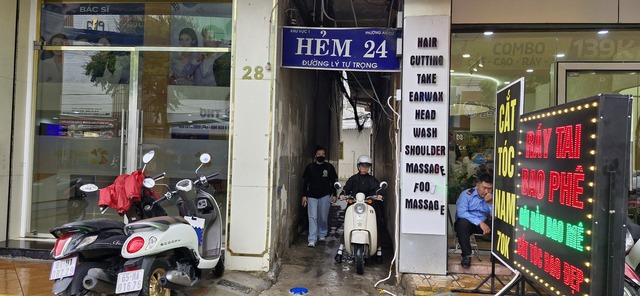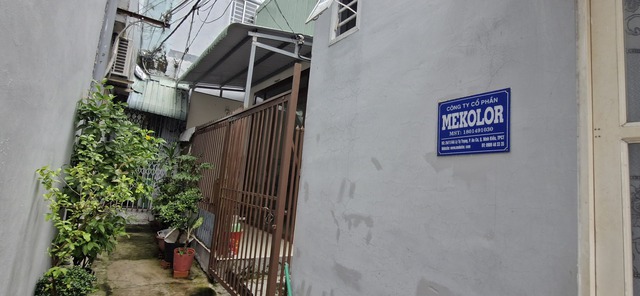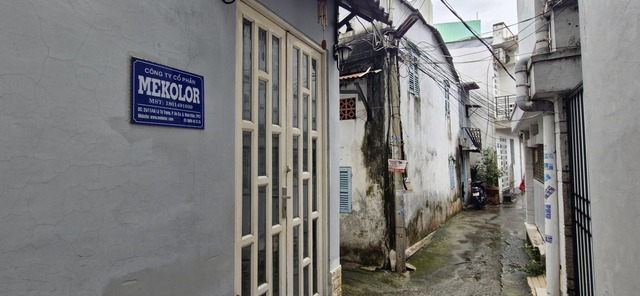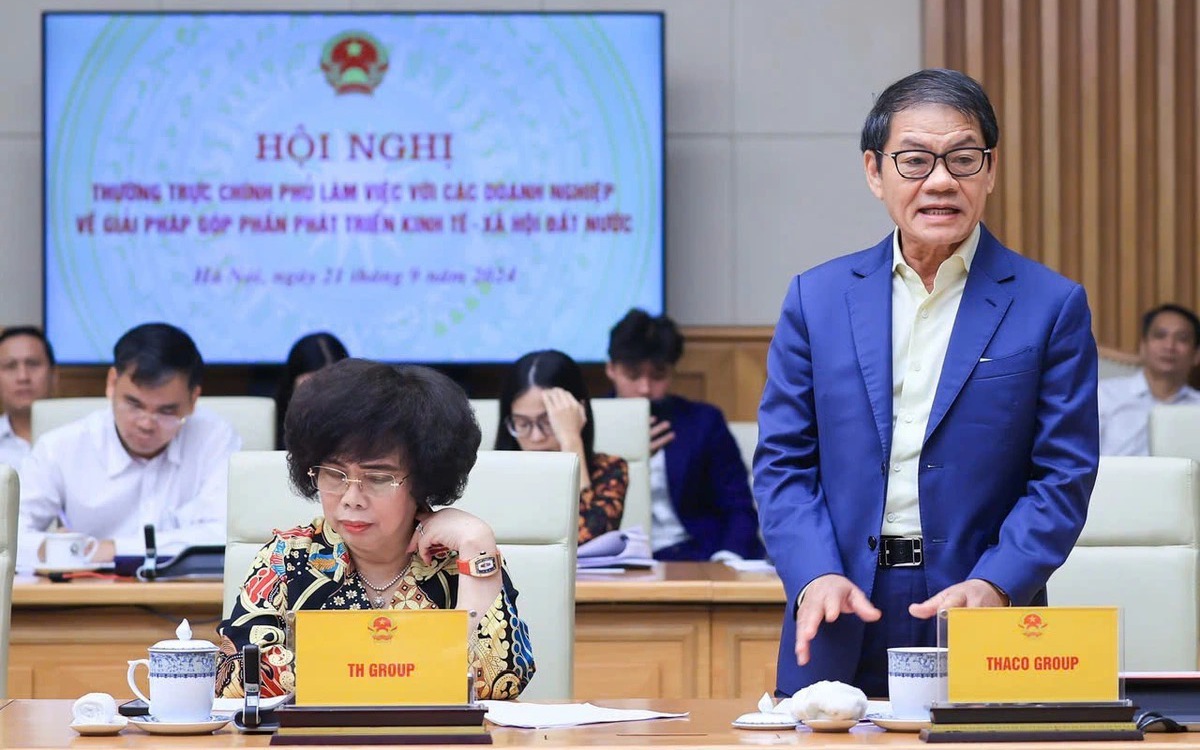
Vietnamese firm in alliance that pledges $100bn for North-South high-speed railway has $38,500 charter capital
An investment alliance involving Mekolor JSC, a Vietnamese company with just VND1 billion (US$38,500) in registered capital, has stunned the public by proposing to arrange $100 billion to develop Vietnam’s North-South high-speed rail project without government guarantees.

Mekolor JSC’s main office is located down a narrow alley in Ninh Kieu District, Can Tho City, southern Vietnam. Photo: Le Dan / Tuoi Tre
The bold proposal comes from a partnership between Mekolor and a company named Great USA Inc., which claims to be based in Florida.
Vo Xuan Truong, chairman of Mekolor, said that the alliance on June 3 submitted the proposal to Prime Minister Pham Minh Chinh and Deputy Prime Minister Tran Hong Ha, pledging to fully finance the massive project and put it into operation within five years of receiving cleared land from the Vietnamese government.
Mekolor also claimed it would advance $10 billion for land clearance and relocation support, stating no financial support or guarantees from the Vietnamese government would be required.
The proposal highlights promises of modern green technology, ESG (Environmental, Social, and Governance) compliance, near-total localization of labor and technical operations (a 95-percent Vietnamese workforce), and even six months of free public use after the railway’s launch.

The head office of Mekolor JSC, the Vietnamese firm behind the $100 billion North-South high-speed rail proposal. Photo: Le Dan / Tuoi Tre
However, public skepticism has intensified after business registration data revealed that Mekolor JSC, established in late 2016, is a small-scale firm with just four registered employees and a head office tucked in a narrow alley in An Cu Ward, Ninh Kieu District, Can Tho City, southern Vietnam.
Its $38,500 charter capital is mostly contributed by chairman and CEO Vo Xuan Truong.
Mekolor’s main registered business activity is event planning and trade promotion—including ground-breaking ceremonies and conferences—rather than infrastructure development.
Its website is currently inaccessible.
The company's three founding shareholders include Vo Xuan Truong with a 94-percent stake, and two others with minor shares of VND30 million ($1,150) each.
Meanwhile, Great USA Inc., the alleged U.S. partner, has yet to be independently verified.
Despite this, Mekolor and Great USA have proactively released press statements and posted documents online promoting their interest in the project.

The head office of Mekolor JSC, the Vietnamese firm behind the $100 billion North-South high-speed rail proposal. Photo: Le Dan / Tuoi Tre
Speaking to Tuoi Tre (Youth) newspaper, Mekolor chairman Truong said the alliance’s strength lies in its financial connections and ability to secure international partners with green tech expertise.
Truong also added that the alliance could meet Vietnam’s net-zero goals and transfer high-speed rail technology to local firms.
The North-South high-speed railway is one of Vietnam’s major infrastructure plans, with widespread interest from the public and local firms.
In contrast to Mekolor’s claims, established Vietnamese conglomerates have submitted proposals with more conventional financial structures.
Last month, VinSpeed High-Speed Rail Investment and Development JSC, a newly established company under Vietnam’s leading private conglomerate Vingroup, submitted a proposal to invest in the railway project, with a proposed total investment of over $60 billion.
VinSpeed was committed to covering 20 percent of the total investment, equivalent to around $12 billion.
The project would be put into operation after five years of construction, with a 99-year investment term.
Vietnamese conglomerate Truong Hai Group, or THACO, also sought the central government’s greenlight to take part in the project.
THACO plans to invest approximately $61.35 billion in the project. Of the total amount, 20 percent, or about $12.27 billion, will come from the company’s own capital and legally mobilized domestic sources.
The company will borrow the remaining 80 percent, or some $49 billion, from domestic and international credit institutions.
It suggested the project be built in two phases over seven years, with a 70-year investment term.
Minh Duy - Ngoc Hien / Tuoi Tre New

